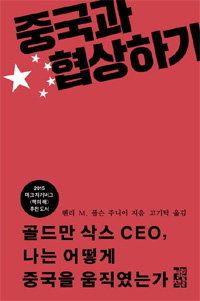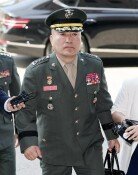Ex-CEO’s secret to leading U.S.-China negotiations success
Ex-CEO’s secret to leading U.S.-China negotiations success
Posted September. 05, 2020 07:26,
Updated September. 05, 2020 07:26

Former U.S. Treasury Secretary Henry Paulson Jr. (2006-2009), a.k.a. global investment bank Goldman Sachs ex-CEO (1999-2006), shared his insight that there is no such thing as an inevitable clash in the U.S.-China relations, adding that the key to getting out of a hostile relationship lies in working on practical issues in the interests of both sides. Despite a series of successful steps taken on his career path, he has not been freed from criticisms that he set the global economy on fire in 2008 while being described as a fireman who saved it from burning down. Documentary film "Inside Job” in 2011, featuring the 2008 global financial crisis, claims that Paulson is among those who should be held accountable for the consequences.
A steer away from such prejudices against Paulson may help readers of his book "Dealing with China” take it as a new window into how to address the conflicts between the G2 – the United States and China.
Strings of advice in the book written by the former global business leader and key U.S. economic policymaker were knotted by many years’ struggles and experiences with China. Making more than a hundred visits to China over 25 years, Paulson has maintained good terms with top Chinese figures including former Chinese leaders such as Jiang Zemin and Hu Jintao and incumbent Chinese President Xi Jinping.
Back in 2006, Paulson paid great care to choose whom to meet first on his visit to China since he took office as leader of the U.S. Treasury Department. His choice was Xi Jinping who was the then governor and party secretary of Zhejiang Province. Afterward, he made a rendezvous with then-President Hu Jintao, who did not find it pleasing to see him, happen. It was heard that Xi was grateful to Paulson for having the first appointment as U.S. treasury secretary with him.
The author of the book shares behind-the-scenes stories as a key player on privatization and globalization of Chinese businesses, college reforms and economic negotiations between Washington and Beijing. It is interesting to read backstories, in effect exclusive to top government officials, and evaluations on those who lead China. For example, when former U.S. President George W. Bush asked Hu Jintao what his scariest nightmare was about, Hu answered, “It is about creating 25 million new jobs every year.”
The self-proclaimed Prometheus, who delivered the fire of capitalism to China as a Western banker, makes a clear argument that a prospering China is in the interest of the United States and the rest of the globe.
Gab-Sik Kim dunanworld@donga.com







